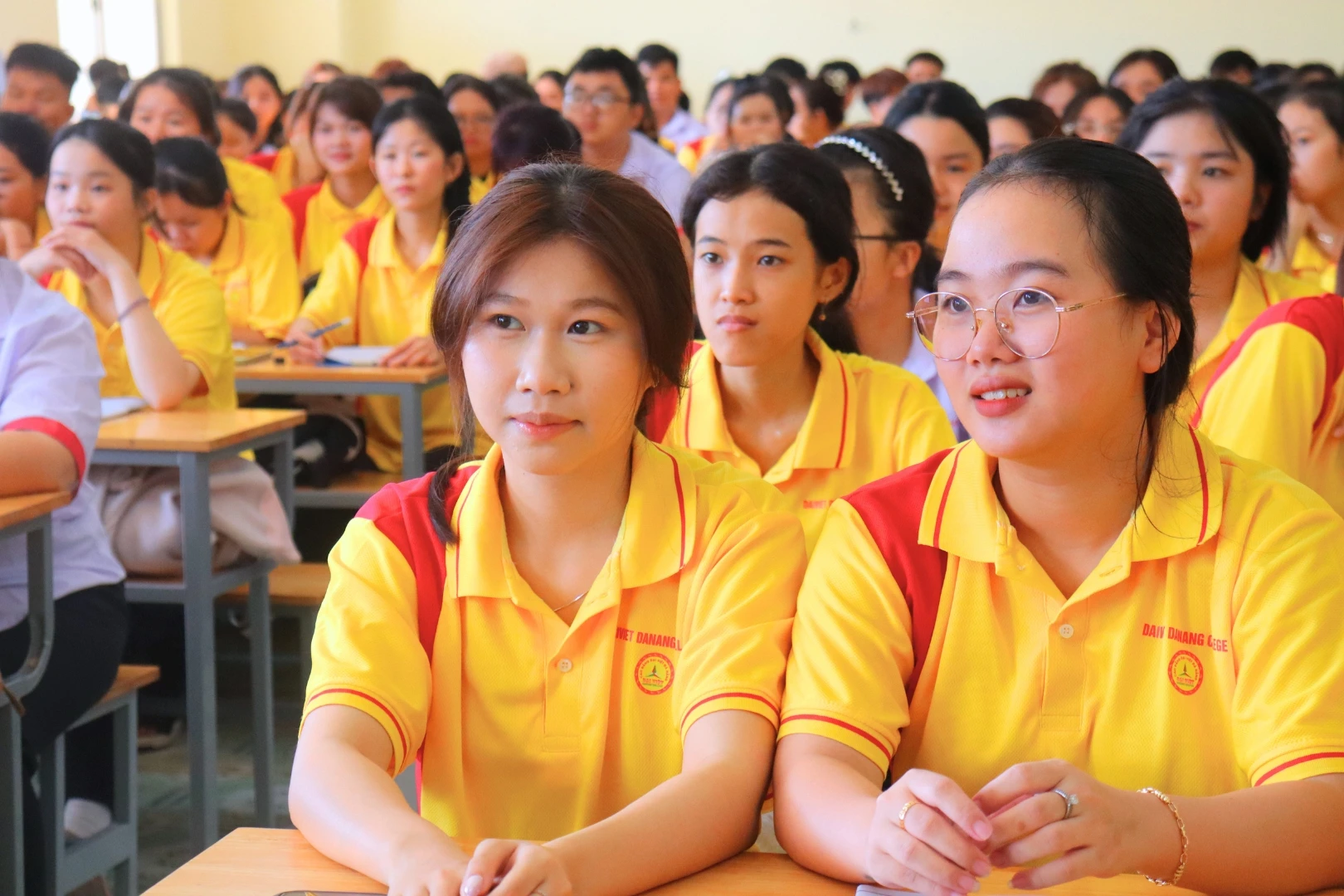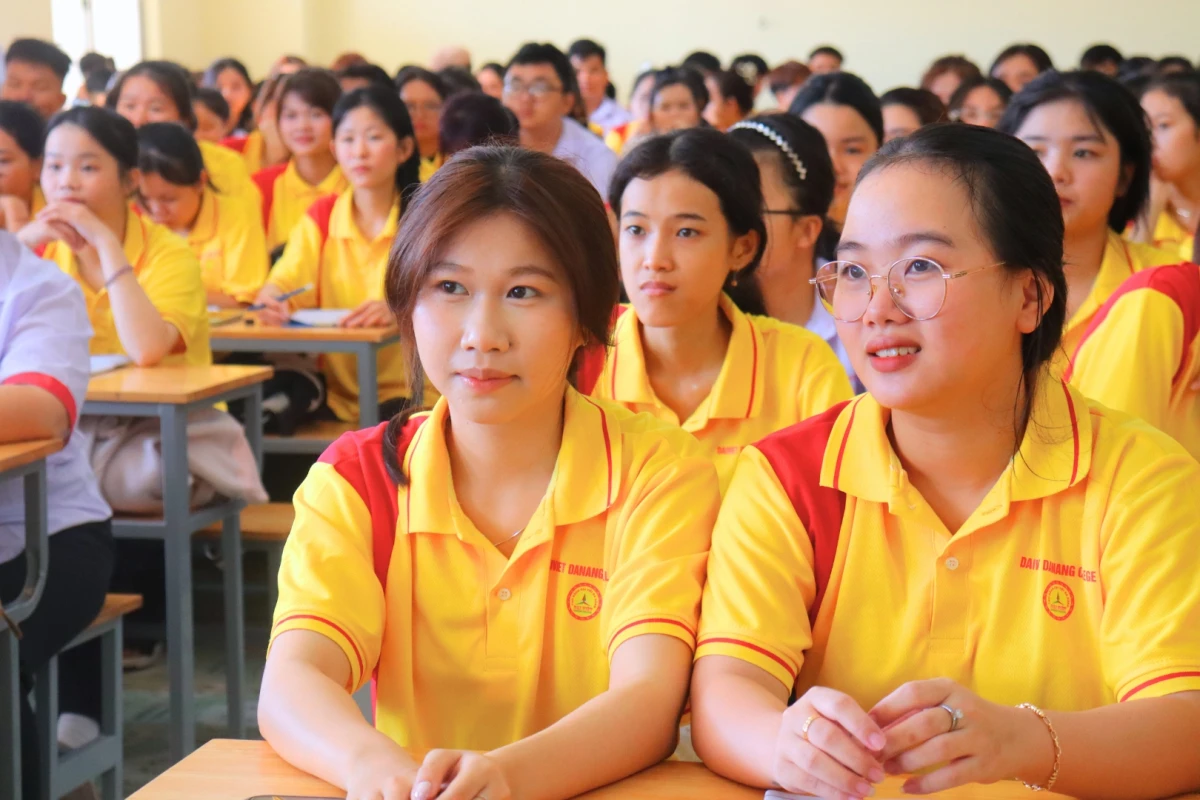In a world constantly changing due to geopolitical conflicts, unconventional wars, and the explosion of digital technologies, the concepts of "national defense" and "security" are becoming broader and more complex. No longer confined to the military or armed forces, defense and security are now the responsibilities of every citizen. From this perspective, National Defense and Security Education is not merely a theoretical subject—it is a journey that shapes resilience, a sense of responsibility, and proactive thinking in the younger generation toward their homeland.
1. A “Strategic” Subject in Education
National Defense and Security Education (NDSE) is a distinctive subject introduced in both general and higher education with a clear goal: to equip students with fundamental knowledge of national defense and security, helping them understand their rights and duties in protecting the country, while also training essential life skills in emergency situations.
Unlike subjects that focus solely on theory or practical skills, NDSE combines both, contextualizing them within the reality of the nation and the world. That’s why this subject is often referred to as “the bridge between the classroom and national strategy.”

2. The Interdisciplinary Nature of NDSE – More Than Just Military Knowledge
Many people mistakenly think that National Defense and Security Education is only about learning to handle weapons, marching drills, or military formations. In fact, it is one of the rare interdisciplinary subjects in today’s educational curriculum. It integrates knowledge from history, geography, law, political science, psychology, technology, and healthcare.
When learning about the strategy of all-people national defense, students explore the relationship between socio-economic development and national protection.
When studying non-traditional security, they approach modern issues such as cybersecurity, energy security, epidemics, and climate change—new threats that don’t resemble traditional enemies.
When participating in first aid or fire prevention training, students realize that even small preparations today can save lives tomorrow.
3. NDSE and the Awakening of Modern Civic Awareness
One of the most important contributions of this subject is its ability to awaken civic awareness—something that is gradually fading among the younger generation under the influence of digital lifestyles, individualism, and utilitarianism.
Through learning about the organization of the Vietnam People’s Army, military service obligations, and simulated defense-security scenarios, students not only understand but also feel the sacredness of the word “Fatherland.” They gradually realize that “patriotism” is not a vague or hollow concept, but can be expressed through very specific actions: obeying the law, protecting the environment, being ready to support the community in natural disasters, resisting harmful information online, and more.
4. Transforming from a “Compulsory Subject” into an “Internal Value”
One of the biggest challenges for NDSE is ensuring that students don’t see it as just another compulsory subject—studied only to pass exams—but instead recognize its intrinsic value.
This requires a strong shift in teaching methodology:
Instead of dry lectures, teachers should integrate current international affairs, analyze real-life security situations in the country and the region.
Apply project-based learning models. For example, students can design a communication plan to combat fake news on social media.
Organize security crisis simulations, evacuation drills, and disaster response planning—allowing students to truly experience the role of a citizen in critical situations.
When students see the practicality and applicability of the subject, they will embrace it as part of their civic toolkit, rather than as an academic burden.
5. A Subject for the Future – Beyond the Battlefield
In the 21st century, “war” no longer occurs solely on the battlefield. A misleading social media post can stir public unrest. A careless click can cause a serious cybersecurity breach. A distorted ideology can shake the resolve of an entire community.
Therefore, National Defense and Security Education is not about preparing for war, but preparing for all situations that demand resilience, rationality, and civic spirit.
This subject cultivates three critical competencies for the future:
Critical thinking – to detect misinformation and avoid manipulation.
Systems thinking – to understand the link between individuals and the nation, between small actions and large consequences.
Community spirit – to realize that personal security depends on collective security.
6. Conclusion: National Defense and Security Education – Where the Vietnamese Spirit Is Revived Every Day
In today’s unstable world, one of the most solid foundations for maintaining independence, sovereignty, and sustainable development is people. And NDSE quietly contributes to this mission—nurturing individuals with strong wills, warm hearts, and clear minds.
National Defense and Security Education does not teach us how to hold a gun to fight, but how to live with dignity in a turbulent world. It does not simply build a “national defense reserve force,” but more profoundly, it shapes resilient citizens—those who love their country with intelligence and action.

